Podcast
→ Ethics of Compliance: Ruth Steinholtz
Transcript:
Nick James:
Hello. I’m the founder and event director of #RISK, a significant and timely series of events that start in November of this year in London. I’m delighted to be joined today by Kimberly Cole, one of our #RISK ambassadors. As well as having a stellar GRC career, Kimberly is the founder of Risky Women, a global network, connecting, celebrating, and championing women in risk regulation and compliance. Welcome, Kimberly.
Kimberley Cole:
Thank you so much, Nick, for having me. It’s great to be here.
Nick James:
Brilliant, Kimberly. I think you set up Risky Women eight years ago in 2014, and I guess there’s no denying that, other than the last two years, that they’ve been particularly challenging for us all, and the pandemic has had a devastating impact on gender equality in the workplace, but are there signs of hope?
Kimberley Cole:
Well, I guess at Risky Women, what we’ve done is that we try to shine a light on the talent in the industry. We’ve both done… Well, several sort of strands of things that we do, but we have Risky Women radio, which is our podcast channel, and we’ve also done our Women To Watch series, and this is an inspiring series of showcasing some amazing talent in the industry, and you can just see those sort of wide of skills across the risk and compliance discipline as well as you’ve got reg tech entrepreneurs and others who are really sort of transforming the industry. So, I guess if we each sort of play our part, we can try to transform what’s going on from a gender equality perspective.
Nick James:
Good. So, we are seeing progress then, because multiple surveys have shown that women leaders are more likely to have the skills related to diffusing emotion, collaborating across multiple stakeholders, balancing business objectives. And as risk is not just a one department function, surely this is the approach that is needed. But why is there still a gender gap?
Kimberley Cole:
Look, I think like with many areas, it’s quite a complex problem, there’s many elements at play. You’ve got to look at everything from sort of recruitment as well as then how job roles are written, how the roles are perceived. And you’ve potentially got the, you can’t be what you can’t see element coming into play as well. So, I mean, once again, I try to focus on things that I can sort of take action on. And so with Risky Women, we are doing things like the Women To Watch series and even the awards that you guys are doing at GRC, I think that’s a really good way to promote the industry itself, to showcase the breadth of roles that are available. And yeah, if we can encourage then the sort of emerging talent with those new skills that are maybe needed, I think that’s how we can sort of start to address the balance.
Nick James:
Excellent. I sort of asked my other question, my second next question, but I will sort of pose it anyway, because I think the problem that there aren’t… It’s not that there are too many men in the industry, but rather there are not enough women. So, how can we encourage more young women into male dominated roles?
Kimberley Cole:
Yeah. So, I sort of covered some of that, I guess, and I do think there’s many different kind of stages of the funnel, if you like. But I do think conferences and things like the GSE world forum are important, that can show women in action on the stage across panels and keynotes, and making sure that we highlight their skills and capabilities. And I think some of that really does help make a difference for the emerging talent who can also connect with those women, which is kind of what Risky Women is about. Get that career advice, hear what’s going on, hear how you can also climb into those positions.
Nick James:
And I guess this is a sort of supplementary question, I guess, the role that men can play in this is crucially important. Yeah.
Kimberley Cole:
Absolutely. I should have said that. Yes, of course, we need mentors and sponsors of all genders, and obviously the decision makers who are in those positions need to also help and guide that emerging talent.
Nick James:
Fantastic. I noticed that you ran a survey in January that said what’s on the mind of Risky Women in 2022. And crypto climate and ESG rose to the top over more traditional risk and compliance areas. Obviously, since then, we’ve had the invasion of Ukraine. Do you think if this question was asked now, then geopolitical risks would be in the top three?
Kimberley Cole:
Oh, absolutely. Look, I mean, I think geopolitical risks were there. It was kind of like there was so many… There’s so many risks, which I think it’s quite interesting because they’re all also kind of weaved together. So, you look at a lot of the risks that were raised, they all sort of… They all flow into the massive disruptions of global supply chains that we saw with the pandemic and obviously now with the Ukraine situation. Other risks are still even around talents that we’ve been talking about. How do you attract and retain talent? You’ve then got cyber attacks and ransomware, all of the kind of shifts that are happening at that geopolitical level, and all of those risks also flow into the ESG and climate change challenges. And some of the other things that we’ve already been talking about, diversity and equity and inclusion, but you’ve got all the tech challenges around official intelligence, all the digital technologies, you could even bring in remote working into that and all of those risks. And even then just how customer preferences and demographics are changing, big data analytics. So, I mean, it’s a huge area, so yes, I think geopolitical risk absolutely would’ve made the top three. I think it was probably close to being there anyway, but it’s just fascinating the number of areas that your sort of risk and compliance professional needs to be across.
Nick James:
Absolutely. It seems to be getting more complex by the minute, really. And obviously we mentioned ESG in that list. In your experience, and this is a question I’m asking lots of different people, because there seems to be a little bit of a turf war going on for who is going to own ESG. Who do you think will win? Is it the CFO, the CMO, or the CRO? And perhaps win isn’t the correct term to use, but who do you think will end up taking the leadership role in ESG?
Kimberley Cole:
We had a really good conversation actually on a recent… I think it was the last actually Risky Women radio podcast, with the team from Protiviti. And we were talking about how ESG was also meaning that the role of the compliance officer was expanding and where they had to get more involved. Now, I think the topic is huge. The E, the S, and the G. There’s been sort of, I think, a lot of focus on the E. Some people would argue that without good governance, the others are not going to be properly represented any way. But I think it’s such a big and broad issue that basically you’ve got to create a culture where all of those people are working together, all of those different functions. You’re going to need all of them to sort of tackle it properly. And I think building organizations where you have the trust and the collaboration between those functions and between all functions actually, to really have an adaptable and resilient organization that can move really quickly and pivot when it needs to is what’s going to be crucial.
Nick James:
I was talking to Michael Rasmussen last week about a similar topic, and he was saying that there should maybe be this new role, the chief integrity officer, but the CIO has gone already. But it will be interesting, I think, to see what the variety of job type tools and maybe where we end up in two to three years time, whether there is a chief ethics and integrity officer within multiple organizations.
Kimberley Cole:
Yes.
Nick James:
No matter the industry or company size, all businesses must adhere to certain laws and regulations. And the compliant target is always moving. While increased oversight has been necessary to restore and enhance trust, do you think we are reaching regulation overload?
Kimberley Cole:
Look, I guess that sort of depends on where you sit. I guess regulatory change absolutely continues at pace. I think we’re also seeing a lot of technology advancements. So, for me, I think the reg tech, supervisory tech, all of that hopefully comes into play and balances out some of that what is often seen as overregulation
Nick James:
And obviously risk is no longer a one department function but perhaps more of a two. And #RISK our event has been designed to attract senior decision makers from all departments. How do you see the role changing and what skills are needed?
Kimberley Cole:
Yeah, I think it’s really fascinating actually, in terms of how the compliance department has changed for maybe in the last 20 odd years and also what kind of skills are needed. So, before maybe having a really good technical knowledge of the laws and the regulation, and then good communication skills was absolutely key, but I think it’s much, much broader than that now. And that means that you are competing for the same talent with a lot of other departments. It’s the business judgment, the strategic thinking, relationship building, negotiation, and of course still your risk assessment, your risk management capabilities. But you’ve got to be across such a broader range of areas, which I think when we were talking about the risks, sort of apply here, too.
Kimberley Cole:
So, your sort of digital skills and technology savviness, but then still having project management, and then you’ve got to have executive presence as well to really influence and be able to speak at that board level. So, I think it’s really going to become even more competitive, so that sort of war for talent in the compliance space will only increase. And you’re going to have to be looking at not just attractive packages, but flexibility and other ways that you can really look at up scaling and keeping them ahead of their game. So, to be a leader in innovation and you’re going to have to provide, help provide training of how to be successful as the world gets more and more digital and there’s more and more tech involved.
Nick James:
It is getting more and more complex. And as you say, the skill sets that are needed are going to be far more encompassing and far… It is going take a holistic person to come in and actually see the overall picture. So, that leads me on to asking how do you think leaders can set the tone? Not only from a commercial or compliance standpoint, but from an ethical position. And bearing in mind that not taking risks means missing opportunities.
Kimberley Cole:
Yeah. I mean, I guess we always talk about this. In Chinese, opportunity and risk are the same word, so different sides of the coin. Look, I think tone at the top remains absolutely key for a lot of these issues in terms of how we really change organizations and lead. But I would refer here to… We did a great podcast with Ruth Steinert, and she’s written a book on compliance and ethics, and it’s really interesting. She says you need a balance and also look at how you do compliance, and says that it can be very values driven. She talks about how compliance can have unintended consequences and can actually make things more risky because people think, “Well, we’ve got this massive compliance department, they’re taking care of the risk so I don’t need to worry. Everything’s sort of sorted, I don’t need to get involved.” And so she says that’s one of the reasons, for example, that you see in many reports the idea that you need to put risk, being back the responsibility of everybody. And she says that about ethics as well, that everyone is a leader when it comes to ethics. And I really like some of those principles. So, I would recommend, that’s a really kind of brief summary, but I would recommend listening to the podcast with Ruth or reading her entire book.
Nick James:
Perhaps we can actually post that underneath this talk so that we can post a link to the podcast and the book, because that sounds fascinating. I’m certainly going to dig it out myself. My final question, and this is obviously from a business rather than a personal point of view, but what keeps you up at night?
Kimberley Cole:
Well, I am going to answer sort of more broadly in terms of what I generally hear from our Risky Women community. And I guess across the board, that is just the pace of change. So, short and sweet.
Nick James:
Kimberly, it’s been fascinating. Thank you so much for joining us. And I look forward to seeing you in person at #RISK, if not before. Many thanks.
Kimberley Cole:
Fantastic. Thanks for having me.
#RISK Founder Nick James in conversation with Kimberley Cole
- 1
 Currently reading
Currently reading#RISK Founder Nick James in conversation with Kimberley Cole
- 2
- 3






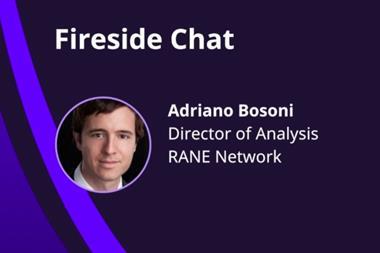
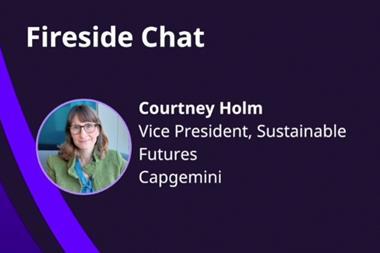
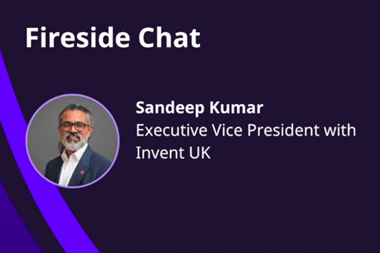
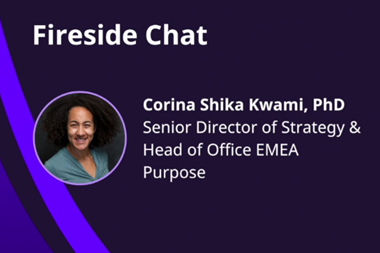
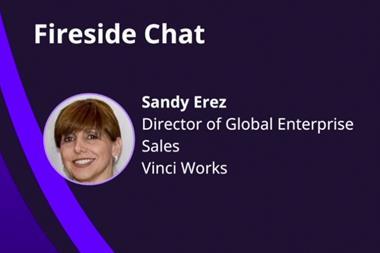


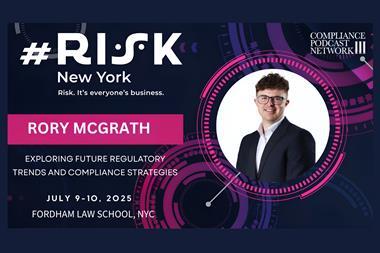
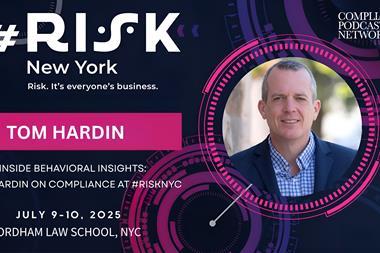
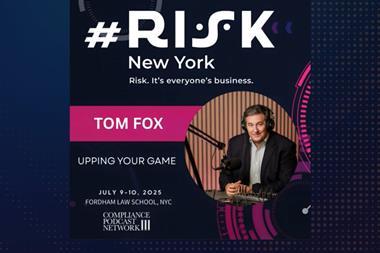
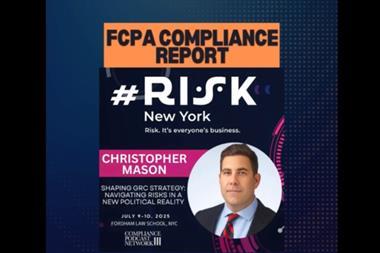
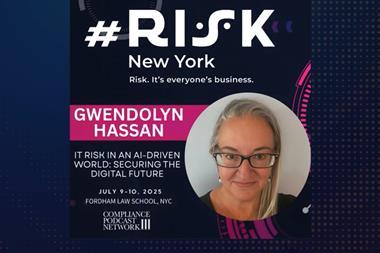
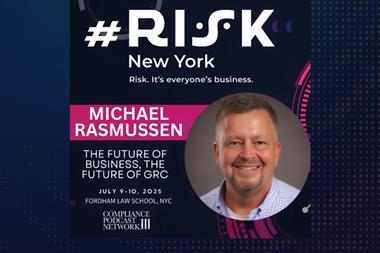





No comments yet